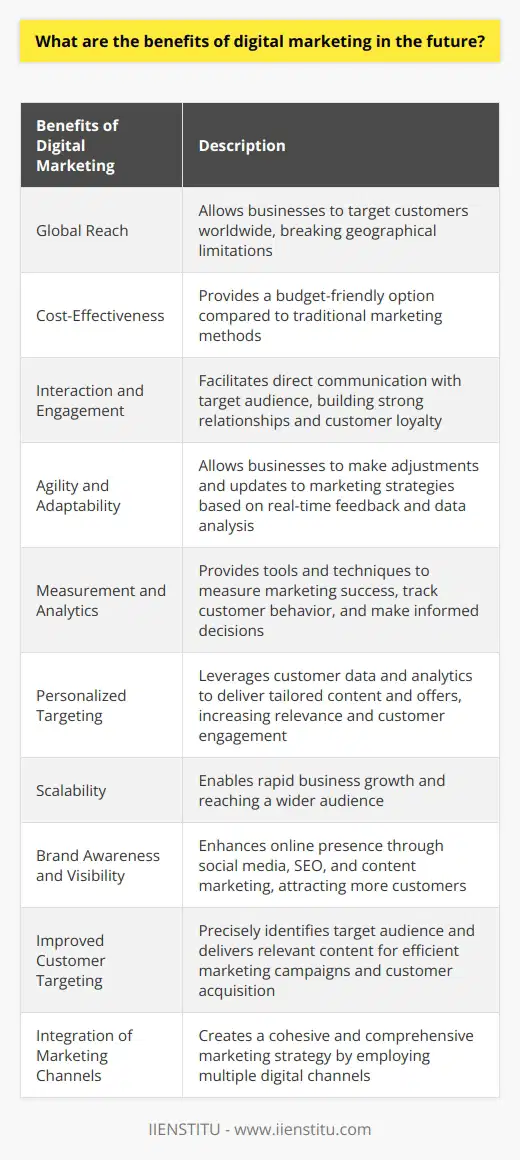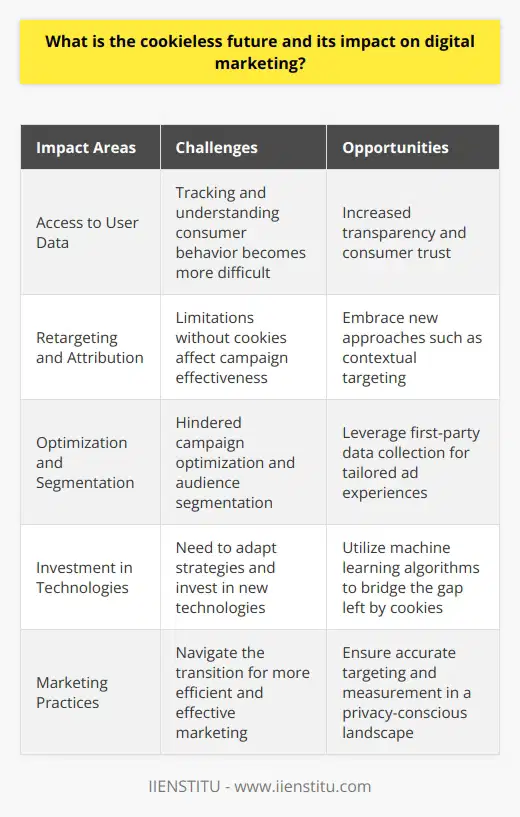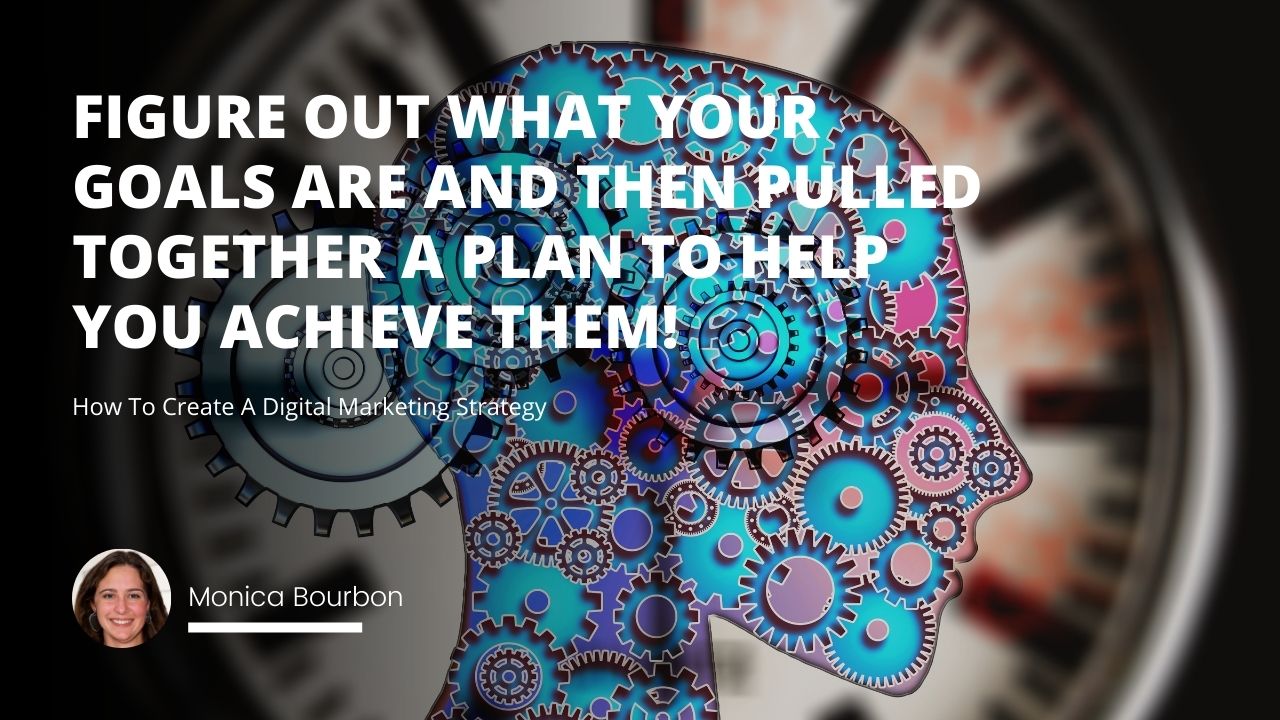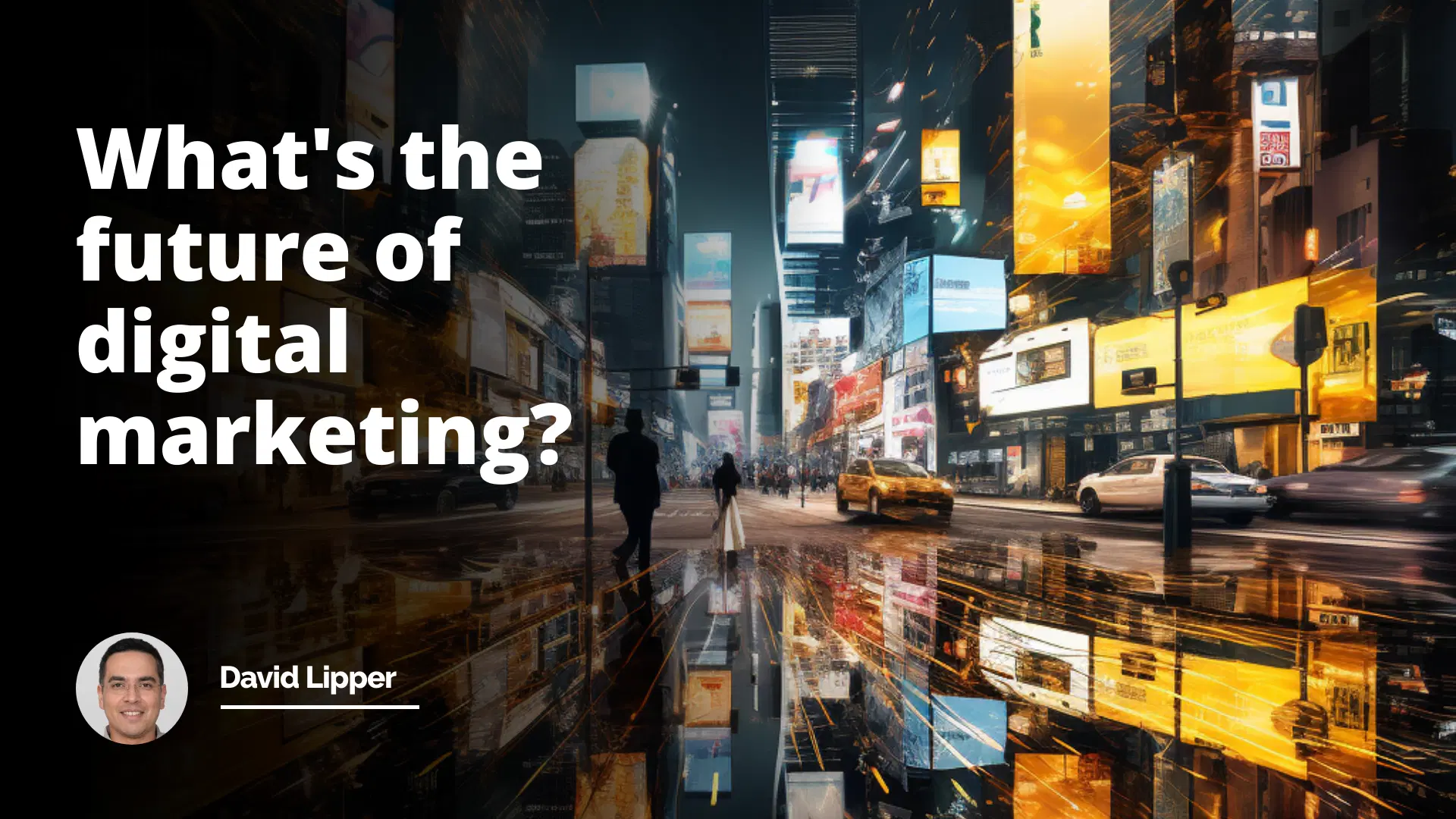
In today's fast-paced digital world, the future of marketing is eagerly anticipated. As technology continues to evolve at an unprecedented rate, businesses are questioning what lies ahead for digital marketing.
Related Course: Digital Marketing Course
In this article, we will explore the future landscape of digital marketing, discuss the significance of a cookieless future, and highlight the benefits that await those who embrace this ever-evolving field.
Whether you are a job seeker or an industry professional, understanding the future of digital marketing is vital for success. So, let's delve into the exciting possibilities that await us!
Why is this interview question asked: What's the Future of Digital Marketing?
This question is commonly asked during interviews to gauge a candidate's knowledge and understanding of the digital marketing field. It allows the interviewer to assess the candidate's forward-thinking mindset, adaptability, and strategic vision for the future.
By asking this question, the interviewer seeks to understand the candidate's ability to keep up with technology trends, think critically, and envision the potential of digital marketing.
The purpose of the question:
The purpose of this question is to assess the candidate's knowledge of current and upcoming trends in the digital marketing industry. It demonstrates their ability to anticipate and embrace changes and suggests their potential to drive innovation within the organization.
A well-thought-out answer to this question showcases the candidate's expertise, awareness of industry challenges, and their ability to leverage emerging technologies for marketing success.
At what interview level is it asked?
This question may be asked at various interview levels, ranging from entry-level positions to managerial or executive roles within a marketing department. However, the level of detail and expectations for the answer may vary.
For higher-level positions, the interviewer expects a more strategic and comprehensive understanding of the subject, including an ability to discuss potential challenges and opportunities in detail.
What kind of answer is expected from the candidate?
A strong answer to this question should demonstrate the candidate's ability to think critically, adapt, and innovate within the digital marketing landscape. The answer should touch upon emerging technologies, the importance of data privacy, personalized marketing strategies, content optimization, and integrating artificial intelligence (AI) and machine learning (ML) into marketing practices.
A well-rounded answer should highlight the candidate's enthusiasm for staying ahead of industry trends and their commitment to delivering successful marketing campaigns.
Possible answers to consider:
Integration of Artificial Intelligence and Machine Learning: The future of digital marketing lies in harnessing the power of AI and ML. These technologies enable businesses to automate processes, gain valuable insights from data, deliver personalized experiences to customers, and optimize campaigns for better ROI.
Personalization and Data Privacy: In the future, consumers will crave personalized experiences. Digital Marketers must strike a delicate balance between leveraging customer data for personalization and respecting privacy concerns. Ethical data management practices, consent-driven marketing, and transparency will be essential.
Rise of Voice Search and Smart Devices: With the increasing popularity of voice assistants and smart devices, optimizing content for voice search will become crucial. Marketers need to adapt their SEO strategies to accommodate voice-driven queries and ensure their content is discoverable by voice-enabled devices.
Video and Interactive Content: Visual content, especially video, will continue to dominate digital marketing. Platforms like YouTube, TikTok, and Instagram Reels provide opportunities for brands to engage with their audiences creatively. Interactive content such as quizzes, polls, and AR/VR experiences will also play a significant role in captivating consumers.
Expansion of Influencer Marketing: Influencer marketing is here to stay, and its effectiveness will continue to grow. Influencers have the power to communicate brand messages authentically to their loyal followers. Collaborating with influencers who align with a brand's values and target audience can yield impressive results.
Emphasis on Customer Experience: The future of digital marketing will revolve around creating exceptional customer experiences. Brands must provide seamless, personalized interactions across multiple touchpoints. From chatbots and personalized recommendations to proactive customer service, customer-centric strategies will differentiate successful businesses.
What to consider when answering:
Stay ahead of trends: Employers seek candidates who are proactive in researching and anticipating market trends. Demonstrate your commitment to ongoing learning and a willingness to adapt to evolving technologies.
Emphasize data-driven decision-making: Showcase your ability to use data analytics to optimize campaigns, identify target audiences, and measure the success of marketing initiatives. Employers value candidates who can effectively leverage data for strategic decision-making.
Creativity and innovation: Highlight your creativity in developing unique marketing strategies and campaigns that engage audiences. Showcase your ability to think outside the box and your willingness to experiment with new ideas.
Digital marketing certifications and industry involvement: Mention any relevant certifications or industry memberships that demonstrate your commitment to staying up-to-date with the latest digital marketing best practices. This indicates your dedication to professional development.
As the digital marketing landscape continues to evolve, incorporating new technologies and trends, the future of this field promises endless potential. Embrace the opportunities presented by AI, machine learning, personalization, and customer-centric strategies to stay ahead of the competition.
By adapting to the changing dynamics of digital marketing, individuals can secure their careers while empowering businesses to reach new heights.
Remember, success in digital marketing lies in continuously learning, adapting, and innovating to foster meaningful connections with customers in the ever-expanding digital world.
Emerging technologies in digital marketing
Impact of AI and machine learning on digital marketing
Trends in consumer behavior and the future of digital marketing
Similar interview questions:
Could you provide insights on the upcoming trends that will shape the future of digital marketing?
In your opinion, what transformations should we anticipate in the digital marketing landscape in the years to come?
How do you envision the future of digital marketing in terms of technological advancements?
Are there any specific advancements or disruptions that you believe will revolutionize the digital marketing industry in the future?
Can you outline the potential challenges and opportunities awaiting digital marketers in the coming years?
What key strategies do you think digital marketers should adopt to stay ahead in the ever-evolving digital marketing landscape?
How do you think consumer behavior and preferences will impact the future of digital marketing?
Can you share your thoughts on the role of artificial intelligence and machine learning in shaping the future of digital marketing?
From your perspective, what major shifts in consumer engagement and interaction should digital marketers prepare for in the future?
How do you anticipate the convergence of different platforms and channels to impact the future of digital marketing strategies?
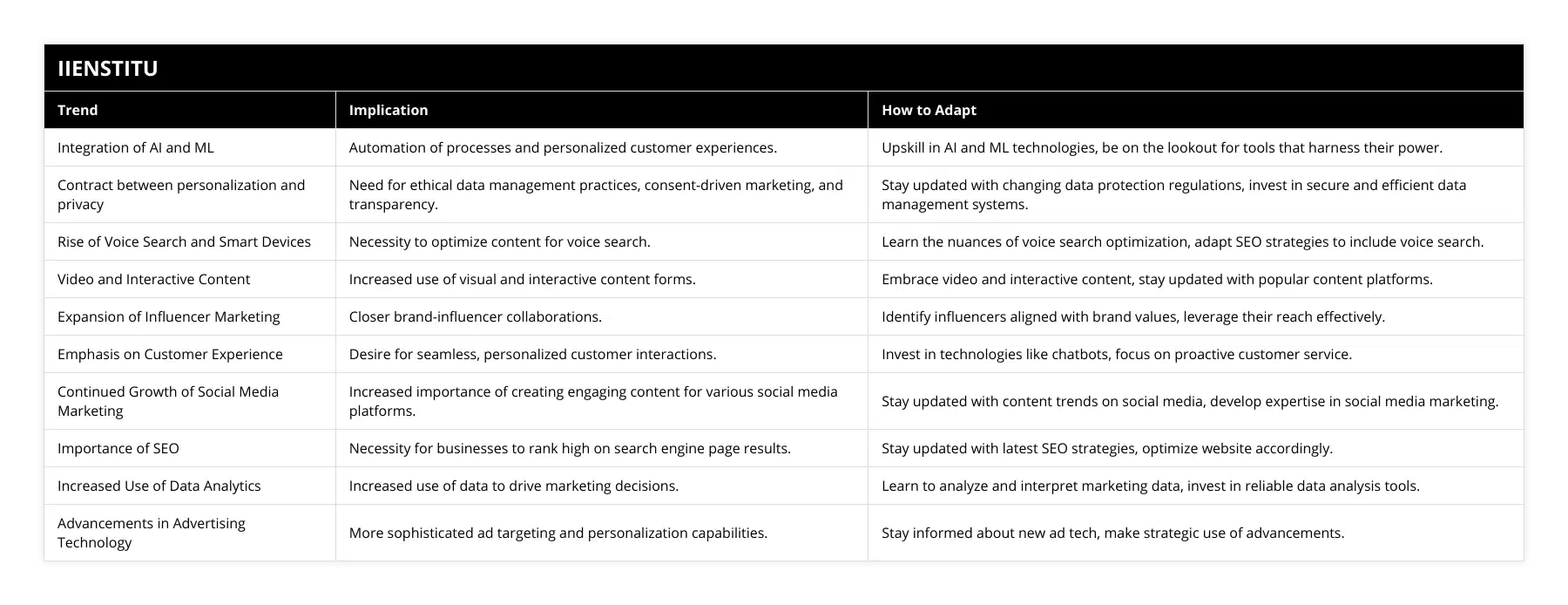
Frequently Asked Questions
What is the future of digital marketing?
The future of digital marketing indicates significant growth and advancements. Emerging technologies, like AI and AR, are reshaping the industry. Companies will increasingly focus on personalized, targeted content.
Automation will optimize campaign management and data analysis. Mobile devices will remain key platforms for marketing strategies. Interactive and immersive experiences will drive customer engagement.
Social media will continue to play a vital role in reaching and engaging audiences. Marketers will need to stay adaptable and agile to keep up with ever-changing trends.
As digital continues to evolve, keeping customer privacy and data security in focus will be crucial. Overall, the future of digital marketing promises both challenges and opportunities.
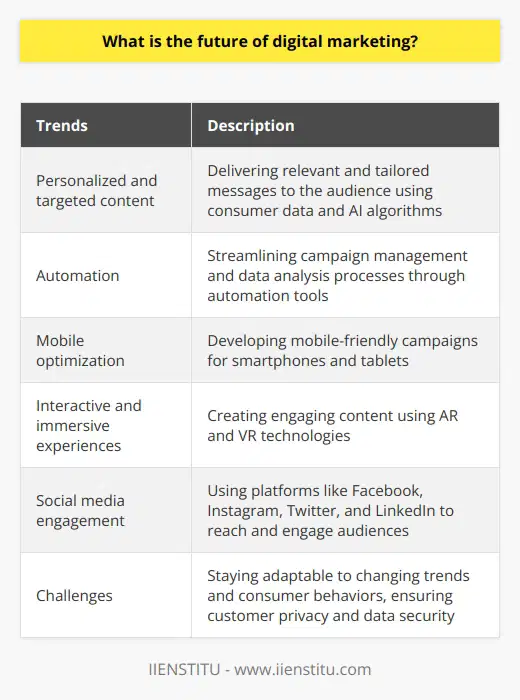
What are the benefits of digital marketing in the future?
In the future, digital marketing offers numerous benefits. It provides global reach, enabling businesses to target customers worldwide.
Digital marketing is cost-effective, reducing marketing expenses significantly. It facilitates interaction and engagement with customers, building strong relationships. It allows for quick adjustments and updates, improving campaign effectiveness.
Digital marketing provides accurate measurement and analytics for better decision-making. It enables personalized targeting, increasing the relevance of marketing efforts. It offers higher conversion rates and customer acquisition for businesses.
Digital marketing allows for scalability, helping businesses to grow rapidly. It increases brand awareness and visibility in the online space.
Digital marketing offers improved customer targeting and segmentation. It provides access to a larger customer base, expanding business opportunities.
Digital marketing allows for targeted advertising and precise audience targeting. It facilitates the integration of diverse marketing channels. Overall, digital marketing presents a promising future for businesses.
